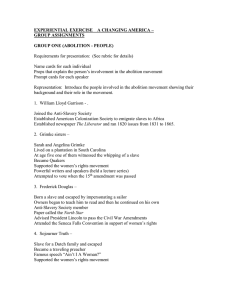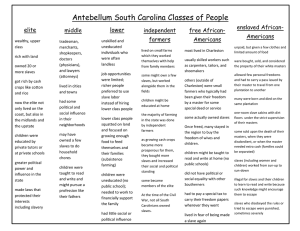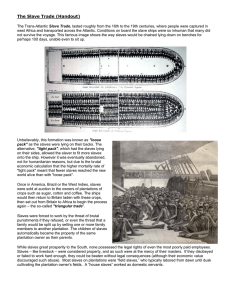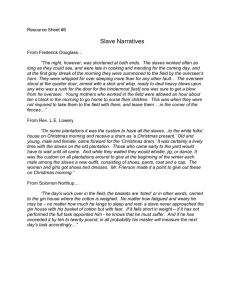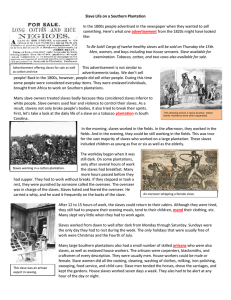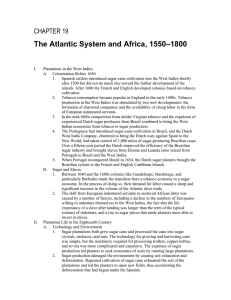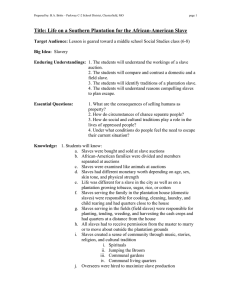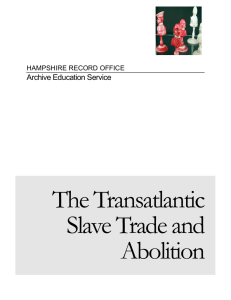African Americans - Slavery
advertisement
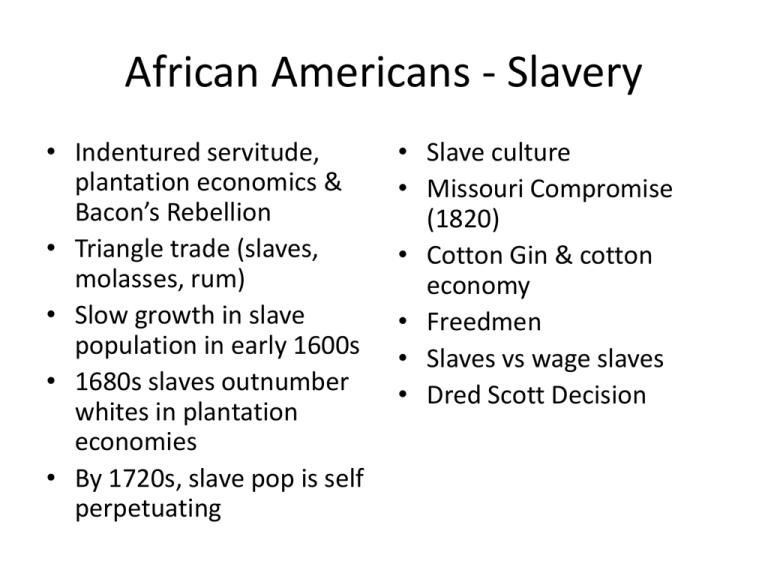
African Americans - Slavery • Indentured servitude, plantation economics & Bacon’s Rebellion • Triangle trade (slaves, molasses, rum) • Slow growth in slave population in early 1600s • 1680s slaves outnumber whites in plantation economies • By 1720s, slave pop is self perpetuating • Slave culture • Missouri Compromise (1820) • Cotton Gin & cotton economy • Freedmen • Slaves vs wage slaves • Dred Scott Decision Black Americans • Reconstruction –(13th, 14th, 15th Amendments) • Reconstruction – new subjugation (KKK, black codes, sharecropping) • Migrations to northern cities • KKK in the 1920s • W.E.B. Dubois & NAACP • Booker T. Washington • A. Philip Randolph • C.O.R.E., SCLC, SNCC • • • • • • • • • Executive Order 8802 Executive Order 9981 Brown vs Board (1954) Montgomery Bus Boycott (1955-1956) 24th Amend (1964) – Poll Tax March on D.C. (1963) Civil Rights Act (1964) Voting Rights Act (1965) Urban Riots Native Americans • Highly advanced civilizations in Central America • Advanced, but less complex civilizations in North America • Hunter-gather & simple agriculture not strong enough or organized enough to resist European encroachment • English – evacuate (removal from land) • French – negotiate (trade) • Spanish – subjugate & integrate (take over & intermarry) Native Americans • Pequot War (1637, CT) • Pontiac’s Rebellion • G. Washington recognized tribes as separate nations & would negotiate by treaties • Tecumseh (1813) • Assimilation & Christianizing • Georgia, Jackson & the Cherokee (1828) • 1830 Indian Removal Act • Indians defeated in wars east of Miss. R. (1832-1837) • Trail of Tears (1838-1839) • Dawes Severalty Act (1887) • Indian Reorganization Act (1934) • Wounded Knee (1890) • Eisenhower & push to the cities • AIM - Alcatraz (19691971)& Wounded Knee (1973) Women • Crucial to early New England success (early marriage & booming birthrate) • S. women more powerful b/c more scarce (but all better off than women in England) • “Republican Motherhood” (civic virtue, moral instruction) increased women’s educational opportunities • 2nd Great Awakening • Cult of Domesticity – 1830-1860 • Lowell Girls (1840s) Women • Lucretia Mott, Elizabeth Cady Stanton, & Susan B. Anthony • Seneca Falls & Declaration of Sentiments • Dr. Elizabeth Blackwell • Margaret Fuller (transcendentalist journalist) • Sarah & Angelina Grimke (abolition) • Temperance & abolition • Suffrage • Women and Work • Glorification of housewife in 1950s • Feminine Mystique • Women’s Lib – – – – Title IX 1964 Civil Rights Act ERA Roe v. Wade




